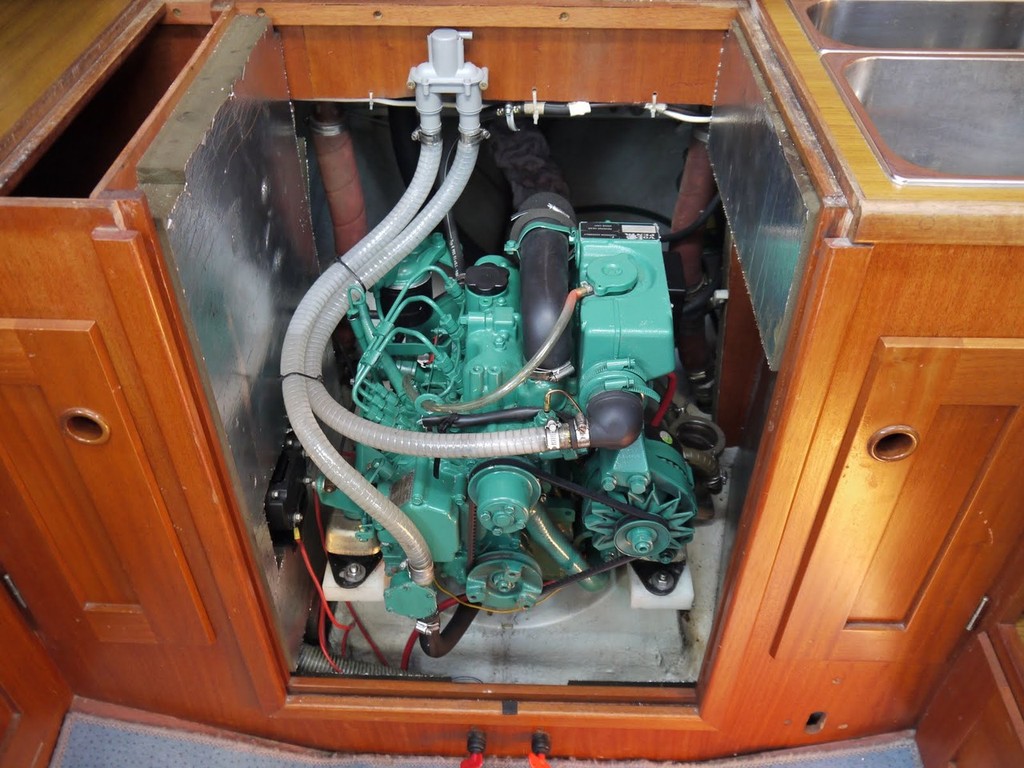Three thieves of boat engine's reliability - vital info for sailors
by John Jamieson on 13 Jan 2013

Clean fuel, clean oil, clean filters - then your engine will never let you down. SW
Like three thieves in the night they creep into your engine and work their way past the slumbering gate guards. Sliding and slithering like a nest of rattlers deep into the belly of your engine to wait... to rest. Until that moment that you push the starter button. And then they attack with relentless, merciless destruction...
World famous cruising sailor and engine guru Nigel Calder has--I believe--the perfect title for a chapter in his book 'Marine Diesel Engines'.
In five simple words, he describes the mantra that any sailor with any engine on earth should heed: 'Cleanliness Is Next to Godliness'.
Those 'thieves in the night' we are talking about go by many names--dirt, dust, grime--but they all are guaranteed to do one thing; cause you grief, big money, and lots of unreliability with your small diesel engine (or outboard for that matter).
All engines need but three 'clean' things to operate like a top: clean air, clean fuel, and clean oil. You do not need to be a mechanic to maintain any engine in tip-top shape. Follow your manual's preventative maintenance advice to the letter. Use this guide to help you along...
1. Keep Your Air Filters Clog-Free:
Clean air gives you good compression. Lose compression from a clogged, dirty, dusty air filter and you lose power. Starting your engine becomes harder and harder. Black smoke from the exhaust signals unburned fuel. Often forgotten, that air filter on the side of your engine needs lots of attention.
It can be hard to pick out, but it often resembles a miniature hair-dryer. Change air filters at least once a year or as your environment changes. Do this even if the filter looks clean after several months. This will ensure easy starting and proper combustion to give you good, reliable power.
2. Keep Your Fuel Squeaky Clean:
90% of all problems with all engines are related to contaminated fuel. Water, bacteria, and dirt are the major enemies of fuel. Ignore these enemies at your peril. Water in a fuel tank encourages bacteria growth. After all, it's dark in that tank, which makes it the perfect 'petri-dish' for engine killing microbes to grow.
Dirt kills engines even faster than water or bacteria. One speck of dirt that makes its way past a fuel filter can damage your costly injectors and create enormous damage to your engine's innards. Put these seven engine life-saving steps into play aboard your boat to avoid fuel problems this sailing season!
* Treat your fuel tank with a diesel soluble biocide (there are 2 types, water and diesel soluble--use the superior diesel soluble biocide).
* Install dual separator-type primary filters between the fuel tank and engine.
* Filter fuel at the pump with a fine mesh funnel (available from marine stores).
* Keep your tank filled to 95% when you leave the boat (allow 5% for expansion).
* Check the fuel deck fill-cap and gasket. That's two things--cap and gasket. A tight cap with a cracked gasket will allow rain water to penetrate into the tank. Keep the cap tight and replace the gasket often.
* Change out primary and secondary fuel filters once a year. Even if your manual says you can go longer on the secondary, do it once a year. If unsure how to do this, hire a mechanic to show you how. It will be one of the best returns on an investment you ever made!
* Before you start the engine, trace the lines form tank to filters to engine. Look for leaks, weak hose clamps, cracked hoses, and bright, colorless sheen (this indicates a fuel leak). Fix fuel leaks before you fire up your engine.
3. Keep Engine Blood Clean and Filtered:
What one component gives you the triple advantage of a lubricant, coolant, and dirt-trapper? Nothing helps your engine operate more smoothly than good oil of proper viscosity (thickness) with a strong filtering system. Look in your user manual and note the interval to change engine oil and filter. What do you see? Slice the interval in half.
If it says change the oil and filter every six months, put it on your schedule for every 3 months. Become fanatical about checking and changing your oil, oil filter, and filter gasket (always change all 3 of these at the same time).
Do not attempt to start any engine before you check the oil level. (this includes before getting underway from a slip, pier, anchorage, or when you use the engine for charging). Check it again after you shut the engine down. Oil should appear black on the stick. Any brownish or milky threads that show indicate water in the oil. If you see this, locate the source of water penetration and repair the problem before you attempt to start the engine.
Follow this simple advice to keep your expensive sailboat diesel engine running like a top and roaring like a lion. It will reward you with long life, good power, and super reliable service--wherever in the world you choose to cruise!
John Jamieson (Captain John) with 25+ years of experience shows you the no-nonsense cruising skills you need for safer sailing worldwide. Visit his website at www.skippertips.com. Sign up for the Free, highly popular weekly 'Captain John's Sailing Tip-of-the-Week'. Discover how you can gain instant access to hundreds of sailing articles, videos, and e-Books!
If you want to link to this article then please use this URL: www.sail-world.com/105537